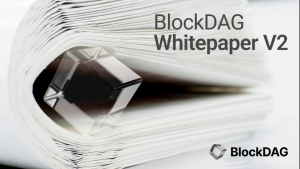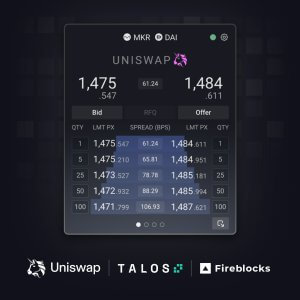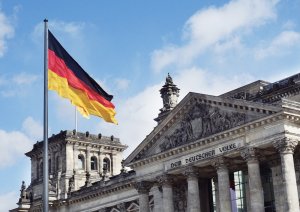HUGE leak of documents could signal the end of the unregulated BVI and Panama FX business
Approximately ten years ago, during the dawn of the dealing desk-based online retail FX brokerage industry, a common practice among startups an industry sector that was relatively new at that time was to operate a small b-book brokerage from regions across the globe which had no financial regulations relating to electronic trading for retail customers, and […]

Approximately ten years ago, during the dawn of the dealing desk-based online retail FX brokerage industry, a common practice among startups an industry sector that was relatively new at that time was to operate a small b-book brokerage from regions across the globe which had no financial regulations relating to electronic trading for retail customers, and then register the business in offshore jurisdictions such as the British Virgin Islands or Panama.
Very quickly, an entire support ecosystem for such enterprises rose to massive prominence, including lawyers which would establish offshore entities specifically dedicating their legal services toward FX brokerages located in New Zealand, Israel, Canada, Britain, the Far East, the Arabian Peninsula, Turkey and Australia.
With the regulatory overhauls that took place at the beginning of this decade, Australia, Britain, Turkey and many regions in the Far East took the steps of ensuring that all FX in such jurisdictions must be conducted via regulated entities, however by that time, many companies which had commenced operations in one part of the world, hired call center staff to sell unregulated FX internationally, yet had offices in the British Virgin Islands or Panama had amassed enough profit to then set up new companies in regulated jurisdictions, transfer operating capital from one to another, and then operate as a seemingly seperate regulated entity to the unregulated, offshore original firm, but with the same owners and shareholders.
Certain companies within that particular sector gained notoriety for collapsing, leaving customers to face vast losses, as in the case of retail firm RVD Markets which collapsed last year. The company operated a profit-and-loss remuneration model, and the company was owned and operated from Russia and registered in the British Virgin Islands. Customers affected were unable to retrieve their funds.
Similarly, Utrade FX, which purchased SkyFX and FXTG from DealServ two years ago recently collapsed, its owner, Aviv Talmor, having been arrested on suspicion of money laundering and managing investment portfolios without a license last month at Ben Gurion International Airport in Tel Aviv, on his arrival in Israel.
Jurisdictions such as Carribean islands with favorable tax laws had become the darling of companies which operated in this manner, and today a massive leak of information which has been dubbed “The Panama Papers” has put some eight million private documents into the public domain.
These papers demonstrate how high profile Panamanian law firm Mossack Fonseca has allegedly assisted its clients – both corporate and high net worth private individuals – to launder money, avoid sanctions and to evade tax.
Indeed, many unregulated FX brokerages which operated for short periods of time in the period between 2007 and 2010 and operated a business model whereby they profited from the loss of their clients were registered in the British Virgin Islands and Panama for that very reason – purely because the authorities would have no power to take any such entity to task when things go awry.
The Panama Papers are considered to reveal a suspected billion dollar money laundering racket involving close associates of Russian President Vladimir Putin.
Investigations that have taken place into this matter have been noted by industry professionals, with Gerald Rye, Director of the Consortium of Investigative Journalists stating publicly that the documents contain the entire day to day business of Mossack Fonseca dating back 40 years.
Mr. Ryle stated “I think the leak will prove to be probably the biggest blow the offshore world has ever taken because of the extent of the documents.”
An investigation by FinanceFeeds recently unveiled that when approaching lawyers that specialize in establishing FX brokerages in regions where FX regulation does not exist, such as Israel, Russia and certain parts of the Middle East and Asia, one of the very first things that are offered are ‘shell companies’.
The Panama Papers details that such shell companies are prevalent in offshore business. The report states that a shell company has the outward appearance of being a legitimate business, but it is just an empty shell. It does nothing but manage the money in it, while hiding who owns the money.
Its management is made up of lawyers, accountants or even the office cleaner, who do little more than sign documents and allow their names to appear on the letterhead. When the authorities try to find out who really owns or controls the money in the company, they are told the management does, but it is all just a front.
Someone else is just paying them so they can hide their money from the authorities or in some cases their ex-wives. Shell companies can also be called “letterbox” companies, as they consist of little more than an address to post documents
BVI or Panama Financial Center
The Panama Papers state that many shell company owners don’t want it based in London or Paris where the authorities can normally find out who owns it, if they really want to. The law firms advise companies that they need an Offshore Financial Center, or what is often called a tax haven. These are normally based in small island countries often in the Carribean (hence the name), with a great deal of banking secrecy and very low or non-existent taxes on financial transactions.
The report specifically focuses on jurisdictions such as the British Virgin Islands, to Macao, the Bahamas, the Seychelles and Panama. Even in such places most of the financial services are perfectly legal: it is just the secrecy which also makes them very attractive to tax evaders and crooks the world over, especially if the regulators are weak or turning a blind eye.
Whilst among the eight million documents leaked, some relate to despotic leaders or fraudsters in other sectors, it will be of great interest to find out how many illegitimate FX brokerages will appear as ‘shell companies’ and whether this leak will put an end to a practice which is a veritable dinosaur, and is as far removed from today’s sophisticated retail FX industry with its high tech execution, and methodology that emulates the institutional world of London and New York.
A good step forward, if this is a method of clearing such entities out, and another step toward ensuring the place of the bona fide jurisdictions in the world for FX industry participants, those being Britain, North America, Australia and Cyprus which are leading the world in terms of the entire ecosystem.









